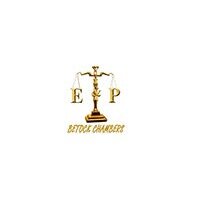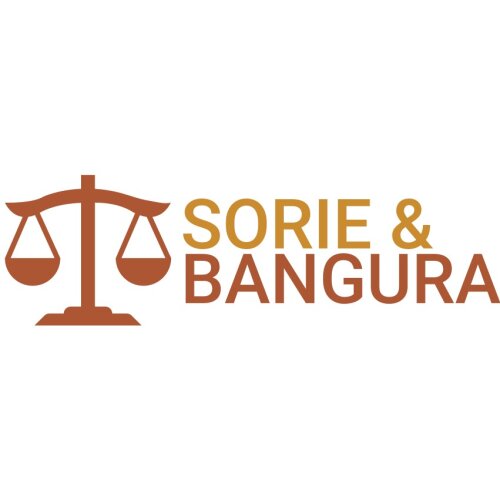Best Water Law Lawyers in Sierra Leone
Share your needs with us, get contacted by law firms.
Free. Takes 2 min.
Or refine your search by selecting a city:
List of the best lawyers in Sierra Leone
About Water Law in Sierra Leone
Water Law in Sierra Leone refers to the set of rules and regulations that govern the use, management, protection, and conservation of water resources across the country. These laws affect how water is allocated between different users, how water pollution is controlled, and how water-related disputes are resolved. Water Law plays an important role in ensuring that individuals, communities, industries, and the environment have equitable access to clean and safe water, which is essential for health, agriculture, economic development, and sustainability.
Why You May Need a Lawyer
There are several situations in which you may require the assistance of a lawyer who specializes in Water Law in Sierra Leone. Common circumstances include:
- Disputes over water rights between neighbors, communities, or businesses
- Conflicts related to land use and water access for agriculture or mining
- Concerns about water pollution from factories, mining activities, or other sources
- Issues involving government permits or licenses for water use or abstraction
- Compliance with regulations set by authorities regarding water safety and sanitation
- Compensation claims due to loss or contamination of water sources
- Advocating for communities whose water resources are threatened or have been degraded
A lawyer can help interpret complex laws, represent you in negotiations or court, and ensure your rights and interests are protected according to the legal framework in Sierra Leone.
Local Laws Overview
The foundation of Water Law in Sierra Leone is rooted in the country’s Constitution, statutory laws, and regulations set by relevant ministries and agencies. Key legal instruments include the Water Resources Act 2017, the National Water and Sanitation Policy, and the responsibilities allocated to the Sierra Leone Water Resources Commission. Important aspects include:
- Water Resources Act 2017 - Establishes the framework for the management, development, use, and protection of water resources. It sets out the roles of national and local authorities, licensing procedures, water user obligations, and mechanisms for dispute resolution.
- Water Rights and Permits - Requires individuals or organizations abstracting or using significant quantities of water to obtain a permit. It defines processes for application, approval, and conditions for use.
- Protection of Water Resources - Sets standards for water quality and outlines prohibited activities that may pollute or otherwise harm water sources. Violations can attract penalties or prosecution.
- Customary Water Use - Recognizes traditional water rights of communities, especially in rural areas, but regulates these rights to ensure they are in line with national objectives for sustainable resource management.
- Institutional Oversight - The Sierra Leone Water Resources Commission and the Ministry of Water Resources are the main bodies tasked with administration, enforcement, and coordination of water-related matters.
Frequently Asked Questions
What is the main law governing water use in Sierra Leone?
The primary law is the Water Resources Act 2017, which provides the legal framework for the management and regulation of water resources in the country.
Do I need a permit to use river water for irrigation?
Yes, in most cases you will need to apply for a water use permit if you intend to draw significant amounts of river water, especially for commercial or agricultural purposes.
How are water disputes between communities resolved?
Water disputes may first be handled through local mediation, but unresolved issues can be referred to the Sierra Leone Water Resources Commission or taken to court for formal adjudication.
What penalties exist for polluting water sources?
Pollution of water sources attracts penalties that may include fines, closure of operations, and in some cases, criminal prosecution under the Water Resources Act or related environmental laws.
Are traditional water rights recognized by law?
Yes, customary water rights are recognized, particularly in rural areas, but they must comply with formal laws and cannot be exercised in ways that harm the public or environment.
Can my water rights be taken away by the government?
Water rights can be suspended or revoked if you breach permit conditions, misuse water resources, or if the government determines it is necessary for public interest, following due legal process.
What should I do if a company is polluting a local stream?
You should report the issue to the Sierra Leone Water Resources Commission or the Ministry responsible for water resources. Consulting a lawyer can help you understand your legal options for seeking compensation or stopping the pollution.
How can communities secure access to safe drinking water?
Communities can work with local authorities, NGOs, and relevant agencies to develop water supply systems, and secure legal rights and permits to access and use water supplies safely and sustainably.
Are there laws about water conservation?
Yes, water conservation is a key objective under national policy and law. Certain activities that waste or misuse water are restricted, and sustainable use is encouraged.
What role do local authorities play in water management?
Local authorities cooperate with national agencies to implement water laws, oversee local water resources, manage permits, and help resolve disputes in their jurisdictions.
Additional Resources
If you need more information or assistance regarding Water Law in Sierra Leone, you may find the following resources helpful:
- Sierra Leone Water Resources Commission - The main body regulating water resource management, permits, and compliance.
- Ministry of Water Resources - Government ministry overseeing water policy implementation and coordination with stakeholders.
- Environmental Protection Agency (EPA) - Responsible for environmental regulation, including water pollution control.
- Legal Aid Board of Sierra Leone - Provides legal assistance on a range of matters, including water-related disputes.
- Local councils and community-based organizations - Can be instrumental in mediation, advocacy, and accessing government support.
Next Steps
If you require legal assistance in Water Law matters in Sierra Leone, it is important to take the following steps:
- Gather all relevant documents, such as permits, correspondence, maps, and photos related to your water issue.
- Identify the specific nature of your legal concern, whether it is a dispute, permit application, pollution, or other matters.
- Contact a qualified lawyer with expertise in environmental and Water Law. The Sierra Leone Bar Association or the Legal Aid Board can help with referrals.
- Consult with your lawyer to assess your rights, obligations, and the potential outcomes.
- Communicate with relevant authorities if required, and follow their procedures for reporting or resolving the matter.
- Consider mediation or alternative dispute resolution if direct negotiation is possible and appropriate.
Remember, understanding your legal rights and the processes involved is essential for effectively managing any water-related issue in Sierra Leone.
Lawzana helps you find the best lawyers and law firms in Sierra Leone through a curated and pre-screened list of qualified legal professionals. Our platform offers rankings and detailed profiles of attorneys and law firms, allowing you to compare based on practice areas, including Water Law, experience, and client feedback.
Each profile includes a description of the firm's areas of practice, client reviews, team members and partners, year of establishment, spoken languages, office locations, contact information, social media presence, and any published articles or resources. Most firms on our platform speak English and are experienced in both local and international legal matters.
Get a quote from top-rated law firms in Sierra Leone — quickly, securely, and without unnecessary hassle.
Disclaimer:
The information provided on this page is for general informational purposes only and does not constitute legal advice. While we strive to ensure the accuracy and relevance of the content, legal information may change over time, and interpretations of the law can vary. You should always consult with a qualified legal professional for advice specific to your situation.
We disclaim all liability for actions taken or not taken based on the content of this page. If you believe any information is incorrect or outdated, please contact us, and we will review and update it where appropriate.
Browse water law law firms by city in Sierra Leone
Refine your search by selecting a city.












